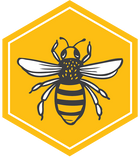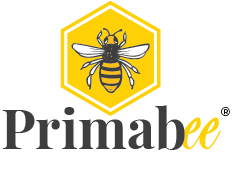CBD vs. THC: What's The Difference?

The number of global consumers using cannabis and its non-psychoactive type – hemp, keeps growing. Despite its popularity, differentiating two types of cannabis - marijuana, and hemp brings confusion to many people. When abbreviations for chemical compounds like CBD and THC come into play, it becomes more challenging to wrap your head around the vast amount of information available today.
Don't worry if you are unsure how CBD differs from THC.
In this guide, we will explain everything you need to know to make informed decisions and understand how these two cannabinoids, CBD vs. THC, affect your body and mind.
What is CBD?
Short for cannabidiol, CBD is one of the two most abundant cannabinoids available in the cannabis plant. Its primary source is hemp, which according to federal law in the U.S., is legal for sale and consumption.
Once extracted from hemp, manufacturers mix CBD with a carrier oil and create various products such as CBD tinctures, edibles, topicals, skin care products, etc. CBD extract naturally contains less than .3% THC. Some manufacturers take an additional step to remove even trace THC amounts to create broad-spectrum CBD, like Primabee Lo2NoTHC* CBD products.
What is THC?
Short for tetrahydrocannabinol, THC is another most abundant cannabinoid in the cannabis plant – specifically in marijuana. THC is responsible for marijuana's psychoactive effects, and consumers usually experience its effects via smoking different cannabis strains high in THC. In states where recreational marijuana use is permitted per law, various THC-infused products are available for sale, like THC edibles or tinctures.
What are Cannabinoids?
Cannabinoids like THC and CBD are a class of chemical compounds in the cannabis plant that can interact with endocannabinoid receptors in the human body. They achieve this due to structural similarities with endocannabinoids – cannabinoids produced within the body.
According to current studies, the endocannabinoid system (ECS) plays a crucial role in various bodily processes such as pain, memory, and homeostasis.
Research indicated that small doses of cannabinoids like CBD and THC from cannabis promote the production of more endocannabinoids and more cannabinoid receptors in the body. That could explain why many first-time cannabis users don't feel anything when they first consume cannabis. By their second or third time, they have built more cannabinoid receptors and are ready to experience effects.
CBD vs. THC
CBD and THC, even though both are cannabinoids within the cannabis plant, significantly differ from one another in the following ways.
Chemical Structures
THC and CBD have the same molecular structure, but their atoms have different arrangements, accounting for varying effects on the body.
Effects
One of the primary and most crucial differences between CBD and THC is the outcomes they produce. CBD is a non-psychoactive compound, and clinical studies have demonstrated its good safety profile. According to consumer reports, CBD can induce a sense of relaxation, help consumers achieve better sleep, and relieve pain. Unlike THC, CBD doesn't impair consumers or cause substance dependency.
On the other hand, THC promotes psychoactive effects and is the primary reason behind marijuana's high. It can also cause numerous side effects, such as anxiety, paranoia, nausea, substance addiction, etc. The study estimated that people consuming marijuana are about 10% likely to become addicted, and THC is the primary ingredient to blame.
Legality
Due to their effects, laws for THC and CBD use significantly vary. The 2018 Farm Bill changed hemp's legal status by removing it from the definition of marijuana in the controlled substances act (CSA), and hemp derivatives like CBD became legally available to millions of consumers. According to federal law in the U.S., hemp-derived products with no more than .3% THC are legal for purchase and consumption.
In contrast, THC is legal for adult consumption only in 19 states and medical use in 36 states.
Uses
According to the U.S. CBD consumer report, millions of consumers take CBD daily to achieve relaxation, better sleep, relieve pain, and improve their quality of life. Because CBD doesn't cause impairing effects, people don't use it to escape reality or be under the influence. In contrast, they usually take CBD to improve their well-being, and most consumers are wellness-oriented.
Marijuana use, especially early on, is commonly due to peer pressure, curiosity, or a desire to fit in. For some consumers, it could be due to a departure from reality or relaxation. Marijuana is commonly used for medical reasons such as managing pain or treating patients with epilepsy and seizures, and PTSD, among other reasons.
The chart below better illustrates the primary differences between CBD and THC.
|
Chemical Structure |
Effects |
Legality |
Uses |
|
|
CBD |
Non-impairing, non-psychoactive, non-addictive |
Legal in all U.S. states per federal law when it contains no more than .3% THC |
Relaxation Better sleep Overall well-being Pain-relief |
|
|
THC |
Psychoactive, impairing, addictive |
Legal for adult consumption only in 19 states and medical use in 36 states. |
Medical, relaxation, a departure from reality |
In Conclusion:
CBD and THC are significantly different ingredients, even though sometimes they are part of the same conversations and even though they usually co-exist in the cannabis or even a product you consume. The primary difference between CBD and THC is that the latter produces psychoactive effects and isn't legal in every state. On the other hand, CBD is non-intoxicating and federally legal in the U.S.





Leave a comment